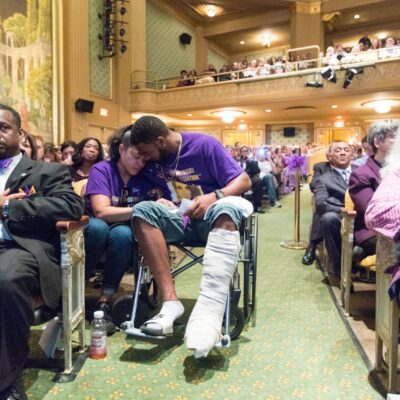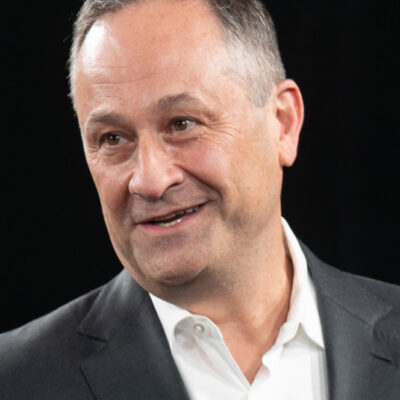In June, when Charlottesville City Council unanimously approved its first Section 3 Policy, Vice Mayor Holly Edwards touted the plan as a job-creation effort that was a “long time coming.” While Section 3 requires all recipients of funding from the federal Department of Housing and Urban Development (HUD) to train and employ low-income individuals “to the greatest extent possible,” Charlottesville’s policy incentivizes other area businesses to do the same.
Before approval, Neighborhood Development Services Director Jim Tolbert said hiring a full-time staff member would help Charlottesville meet Section 3’s goals. Accordingly, the city hired Tierra Howard, a former director of its Neighborhood Leadership Institute, to encourage local businesses and individuals to take advantage of Section 3’s employment and education opportunities.
|
Tierra Howard is creating business and resident registries to help employ more low-income individuals in HUD-funded city projects. (Photo by John Robinson) |
“Section 3 has been around since 1968,” said Howard, a longtime Charlottesville resident and graduate of UVA’s Urban and Environmental Planning program. “Agencies like the city and Charlottesville Redevelopment and Housing Authority have complied, but HUD wants to see you go the extra mile.”
Since she started in August, Howard has helped the city do just that by revamping its resident enrollment form and launching a registry for Section 3-compliant businesses. Below, more from Charlottesville’s efforts to expand job opportunities for its low-income residents.
Tell us about your first few months on the job.
I feel like this position has great support from city staff, city manager, City Council. Many of the departments within the city are jumping on board. Being able to work with the various departments will allow for Section 3 to progress. It’s been very interesting, and it’s been very busy.
I don’t like to use the word “successful” when referring to Section 3 progress, because the program can be difficult to implement, but as far as the work that I’ve been doing in the last couple of months, I feel like I’ve made great progress in laying the foundation for the program, including setting up a business registry and resident registry.
How does a Section 3 registry work?
When the city or Charlottesville Redevelopment and Housing Authority is working with a contractor, and there is a need to hire new people, and the project is a HUD-funded project that meets the monetary thresholds, then contractors are required to comply with Section 3. If new hires are necessary, then at least 30 percent of those new hires are required to be Section 3 residents.
When HUD funds are not involved, then the city cannot provide an employment, training or contracting preference, but the city can strongly encourage contractors to comply with Section 3. When employment, training, or contracting opportunities are available on Section 3 covered projects, then contractors who are required or volunteer to comply will be referred to the certified resident database and businesses database.
What advantages does Section 3 provide for local businesses?
The city purchases materials and services on a repeated basis… In the event of a HUD-funded project, Section 3 businesses are offered an incentive. [Note: Businesses can pay a certain percentage higher than the lowest responsive bid.]
Right now, I’m working with the procurement department to determine which services we contract out and which ones are renewable. I’m targeting those contractors to see if they are Section 3 businesses, and to see if we can get them certified.
What are the difficulties of implementing Section 3?
We’d like to refer residents who are work-ready. Getting residents registered, but also making sure that they’re ready to work, can be very difficult. I’m meeting with Social Services as well as a host of other organizations and resources to talk about how they can become involved.
On the business side of things, it’s difficult to decide where to begin outreach. There are a lot of businesses in the city. Getting them registered and following up will be a challenge. Lastly, employment, training, and contracting opportunities are not guaranteed, but must be viewed as possible opportunities. On the upside, the City of Charlottesville has a Section 3 coordinator. There are a lot of localities that don’t have a coordinator. Another positive note is that the City has taken a progressive approach by adopting a Section 3 Plan in partnership with the Housing Authority, which serves as a new model for Section 3.
/RI__IMG_0203.jpg)





